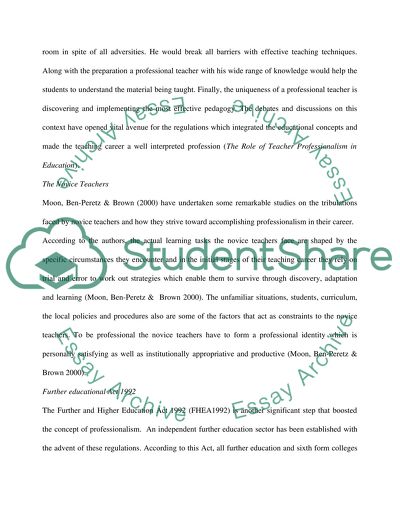Cite this document
(“Professionalism in Education and its Impact on Teachers Essay”, n.d.)
Retrieved from https://studentshare.org/professional/1552305-professionalism
Retrieved from https://studentshare.org/professional/1552305-professionalism
(Professionalism in Education and Its Impact on Teachers Essay)
https://studentshare.org/professional/1552305-professionalism.
https://studentshare.org/professional/1552305-professionalism.
“Professionalism in Education and Its Impact on Teachers Essay”, n.d. https://studentshare.org/professional/1552305-professionalism.


